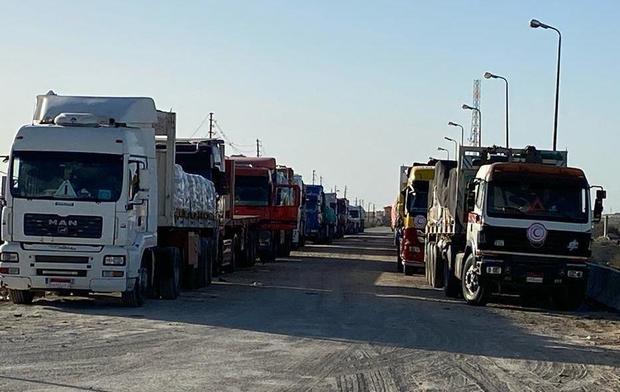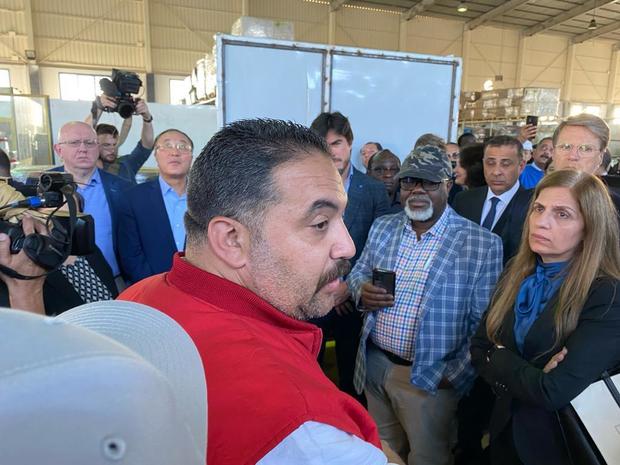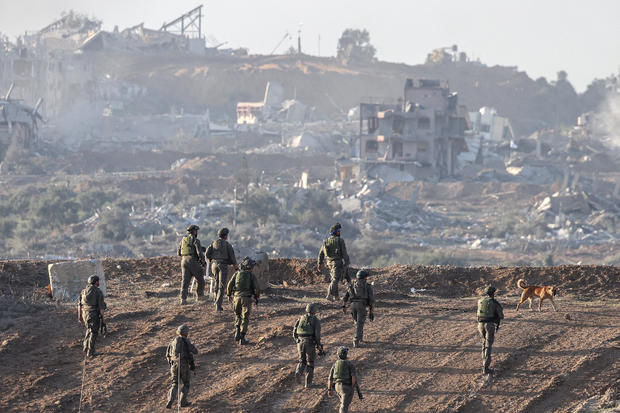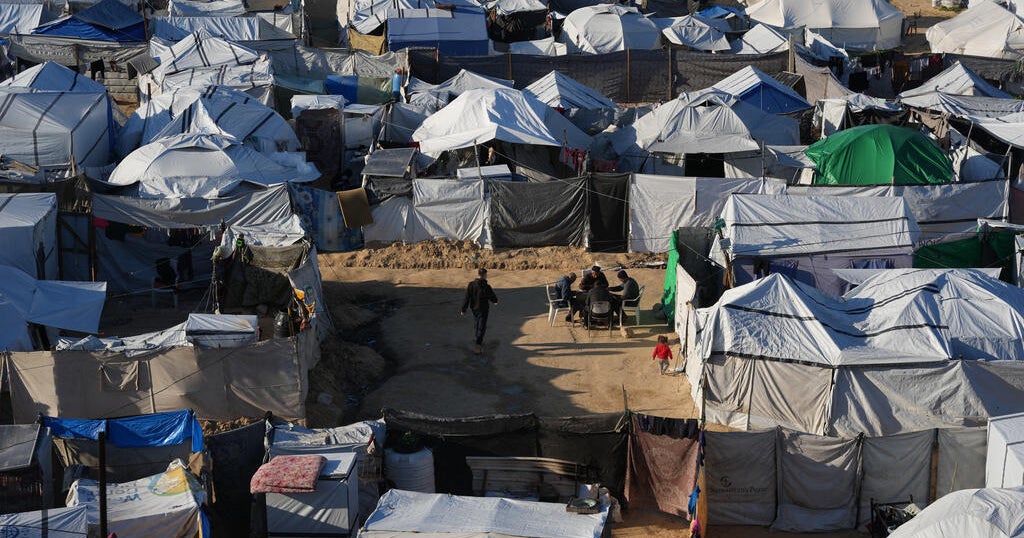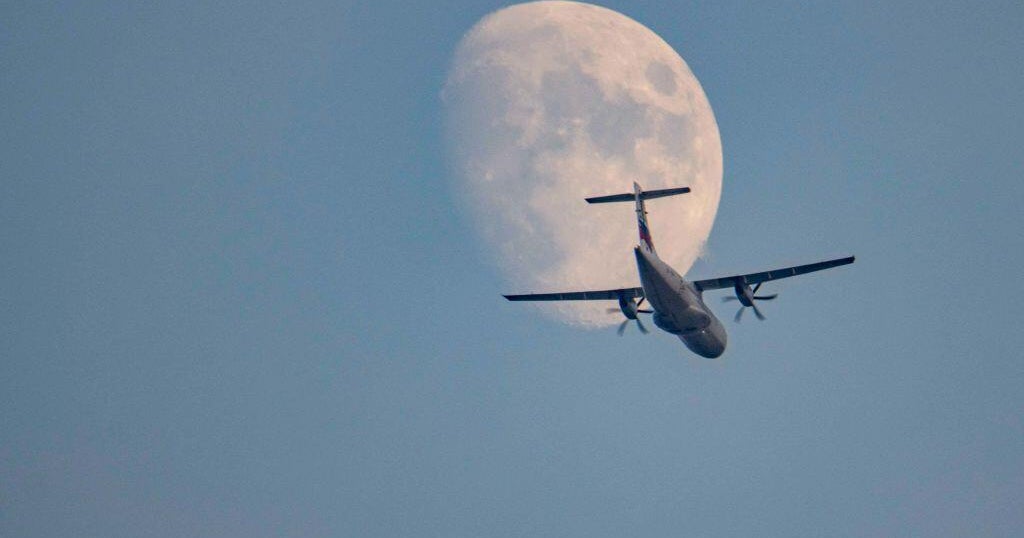U.N. says Israel-Hamas war causing "unmatched" suffering in Gaza, pleads for new cease-fire, more aid
Israel's military says it has captured Hamas' former headquarters in Gaza City, but the war between the two sides was still raging Monday further south in Gaza, and the situation for civilians is only getting worse. United Nations relief agencies say about 90% of the Palestinian territory's population has been displaced — nearly 2 million men, women and children.
The U.N. World Food Program (WFP) says nearly all of those in the enclave are going without food for days at a time, and half of the displaced Palestinians are starving.
"I have seen a family gathering over a loaf of bread, just getting it into small pieces like croutons that we put on the side," WFP spokesperson Abeer Etefa told CBS News. "The suffering of the children in Gaza is, I think, it's unmatched."
"The humanitarian operation is actually on the brink of collapse," added Etefa. "It's impossible to deliver aid in these conditions… We need the cease-fire now."
That call, and a plea for a major increase in the flow of humanitarian aid, was repeated by the head of the U.N.'s relief agency for Palestinians in the Gaza Strip and West Bank (UNRWA), Philippe Lazzarini. He told CBS News as he prepared to cross into Gaza from Egypt on Monday that the failure of global powers to negotiate a new cease-fire had left him with "deep frustration, disappointment, some outrage also."
The U.S., Israel's most valuable ally, stood alone on the U.N. Security Council Friday to veto a resolution that would have called for a new cease-fire in the war.
Lazzarini said he was visiting the area to show solidarity with the Palestinian people trapped there, and with the more than 10,000 staff members from his agency still trying to help those people. UNRWA said over the weekend that at least 134 members of its staff had been killed in Gaza since Oct. 7, when the war was sparked by Hamas' brutal terror attack on southern Israel.
With the flow of aid into Gaza constrained by the war raging again after a brief truce last month, Lazzarini said there was a "total discrepancy between the few trucks" being permitted to enter the enclave with aid materials and "the immensity of the needs."
"The only way to reverse that is to bring in, at scale, meaningfully, the human assistance and the commercial goods," he said, renewing a specific call for Israel to open its Kerem Shalom crossing south of Rafah.
"It's a crossing which is very well equipped for inspections," Lazzarini said on the Egyptian side of the Gaza border. "It's a crossing which used to be used before October 7th, processing hundreds of trucks on a daily basis, processing hundreds of commercial trucks and, indeed, this is a crossing that we are asking to be opened."
In a message shared Monday on social media, UNRWA said it was "on the verge of collapse," and added that if the agency did cease operations, "humanitarian aid that almost an entire population of Gaza depends on, will also collapse."
Separately, almost two dozen U.N. ambassadors were on an informal trip sponsored by the United Arab Emirates and Egypt to visit the Egyptian side of the Rafah crossing Monday.
"What we saw and heard today confirms that one single border crossing is critically insufficient. We need sustained access through multiple routes, including the sea route, and we need to minimize delays in the entry of aid through a robust and streamlined monitoring mechanism," UAE Ambassador Lana Nusseibeh told CBS News on Monday.
The U.N. ambassadors visited just a day before the General Assembly was scheduled to vote on a non-binding resolution calling for a cease-fire, similar to the one vetoed by the U.S. in the Security Council, which would have been binding under international law.
In the meantime, undaunted by the increasingly urgent calls for a new cease-fire, Israel continued with the military operation it has vowed will destroy Hamas.
An Israeli airstrike obliterated a family home in the southern Gaza city of Khan Younis. And Nasser hospital, the biggest in southern Gaza, was left overflowing with the dead, the injured, and scores of parents and children — many who had fled their homes in the north, as they were instructed to do by Israel's military — grappling with loss and grief.
The Ministry of Health in Hamas-ruled Gaza said 208 people were killed in Israeli strikes Monday alone, and many more were believed to be trapped under the rubble of destroyed buildings. According to the ministry, which does not discern between civilian and militant deaths in Gaza, more than 18,000 people have been killed in the Palestinian territory since the war started on Oct. 7.
There's been more anguish in Israel, too, including in Jerusalem as people gathered for the funeral of a soldier killed in Gaza. There's been more anxiety, as well, as another rocket fired from Gaza landed in the Tel Aviv suburbs Monday morning, damaging apartments and several cars.
Despite Israel's grinding offensive, Hamas still has the ability to hit the country, and it tries every day.
CBS News' Ahmed Shawkat and Pamela Falk contributed to this report.

